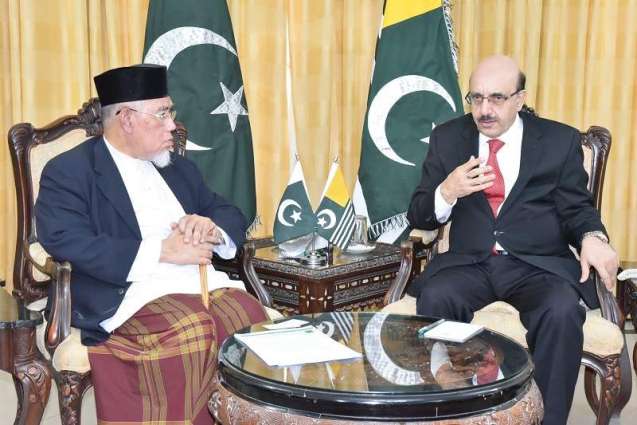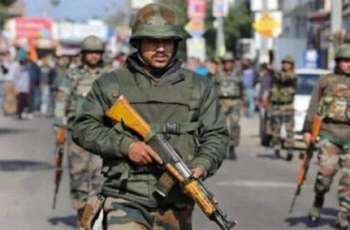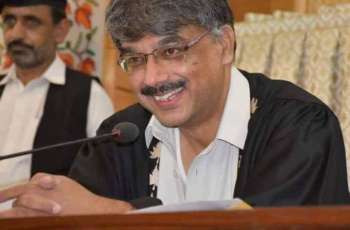Malaysia-AJK cultural centre in Muzaffarabad, trade ties to be established
Islamabad (Pakistan Point News - 21st January, 2020) Sardar Masood Khan, President Azad Jammu and Kashmir, thanked Malaysian Prime Minister Mahathir Mohamad and the Malaysian nation for their principled stand and strong support to the people of Jammu and Kashmir in the aftermath of August 5, 2019. He saluted the Malaysian leadership that after India threatened to cut imports of palm oil, aluminum, gas and computer equipment from Malaysia in retaliation for its principled position on Kashmir. The AJK President said that the Malaysian Prime Minister had rightly characterized India’s action in the Indian Occupied Jammu and Kashmir (IOJK) as “invasion and occupation”.
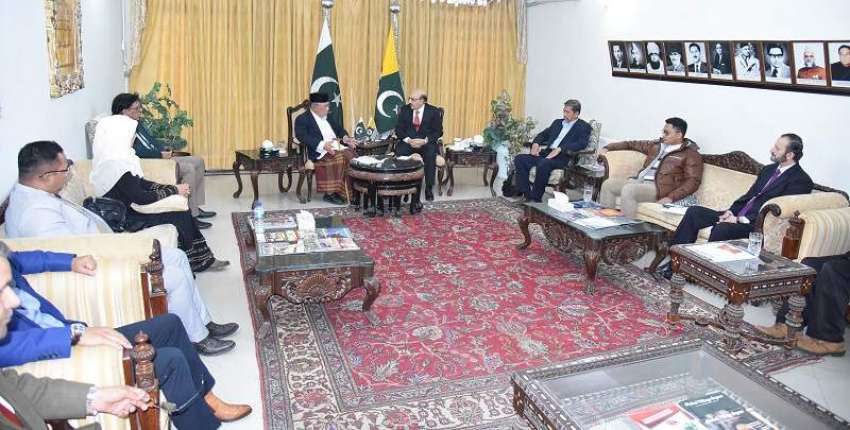
The AJK President made these remarks while talking to a nine-member Malaysian a delegation led by Mohd Azmi Abdul Hamid, President of MAPIM (Malaysian Consultative Council for Islamic Organization), an influential organisation in Malaysia with networks in ASEAN nations and beyond.
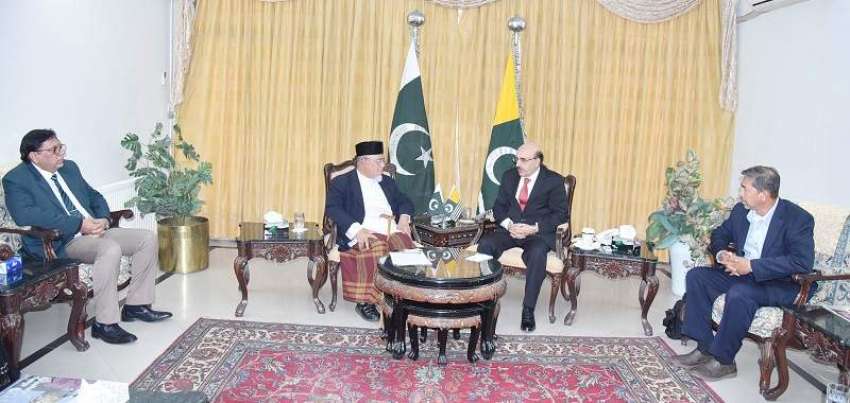
Sardar Masood Khan also commended Prime Minister Mahathir Mohamad’s criticism of the new citizenship law in India designed to discriminate against Muslims. The Malaysian Prime Minister, he said, has rightly pointed out that “people in India are dying because of this law”. The President said that India wanted to remold the disputed territory of Jammu and Kashmir and now the whole of India as a Hindu nation, crush Kashmiri Muslims and relegate the status of Indian Muslims to aliens.

President Masood thanked the efforts of Mohd Azmi Abdul Hamid for highlighting the Jammu and Kashmir dispute in Malaysia and ASEAN countries and lauded his efforts to establish closer ties between Azad Kashmir and Malaysia. He deeply appreciated that the MAPIM President had delivered lectures on the subject of Kashmir in over 50 Mosques and several universities in Malaysia.
Mr. Azmi Abdul Hamid said that Malaysia, in collaboration with Azad Kashmir, would establish a cultural centre in Muzaffarabad. This, he said, would be the flagship project of AJK and Malaysian cooperation. He added that MAPIM would also explore possibilities of trade ties between Azad Kashmir and Malaysia.
Sardar Masood Khan thanked MAPIM for establishing the “Malaysia-Kashmir” group led by Mohammad Fadhil bin Yusni, Coordinator Malaysia-Kashmir Youth Forum, under the umbrella of MAPIM. Welcoming the Youth Forum’s initiatives, President Masood Khan said that this is a giant step towards raising awareness on the plight of the Kashmiri youth in IOJK. He informed the MAPIM delegation that in IOJK according to the National Indian Federation of Women, 13,000 Kashmiri boys, some of them as young as 9 to 12 years old, have been abducted and incarcerated in concentration camps in IOJK or have been transferred to the most notorious jails in India, where they are being subjugated to inhumane torture.
The MAPIM President apprised the AJK President that a Media Group would also be formed to help fully understand the true history of this dispute. The President was also informed that Kashmir cultural events would also be organized in Malaysia and a series of conferences would be held in Kuala Lumpur and other ASEAN countries, including one in Bangkok. ASEAN and world youth parliaments would be mobilized to pass resolutions that could be brought to the attention of relevant national parliaments and cabinets of the relevant countries. This activity would be in addition to the ASEAN Advocacy Groups that have been established under the auspices of MAPIM.
Talking about linkages between AJK and Malaysia, Mr. Mohd Azmi said that linkages would be made between the Mosques in Azad Kashmir and Malaysia. One such Mosque would be identified in Muzaffarabad. He proposed that trade between AJK and Malaysia could cover food, tourism, hospitality and the Halal meat industry. The President said that this scope could be widened to include Kashmiri products and handicrafts such as Pashmina shawls, wooden handicrafts, papier-mache products, precious stones, horticulture, agriculture and fruits (apples, apricot, walnuts and mangoes).
